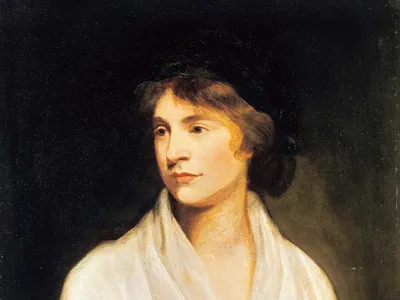Subscripe to be the first to know about our updates!

Mary Wollstonecraft, A Vindication of the Rights of Woman
Alaa Alghamdi
Criticized in later years for failing to call for more global rights for women, Wollstonecraft was nevertheless writing within the confines of her day and, quite possibly, using a technique that ensured her views would receive consideration. While a more ambitious plea for women’s equality might alienate readers, her argument for the education of future mothers who must educate their children had the right tone and content to appeal to a wider swath of the population. Indeed, the need for women to be mothers capable of educating their children and understanding their complex needs is almost incontrovertible. Moreover, by focusing on this role, Wollstonecraft was reminding readers of the fact that the women’s role and wellbeing is deeply embedded within that of her family and her entire community. Withholding education from women therefore cannot help but be detrimental to the society as it impacts not only the women themselves, but the future population of citizens, both male and female. It was, simply stated, an argument which could hope to make substantial headway without alienating those whose thinking on the matter is traditional.
However, in considering that the limitations (from a modern perspective) of Wollstonecraft ‘s argument are a strategy to gain support from readers, one should not overlook the sincerity of her argument. Indeed, sincerity is not at odds with the idea of her wanting to make gain support through limiting the scope of her argument. It is possible that, in limiting her argument to the importance of the education of women as mothers, Wollstonecraft is pointing out how deeply embedded women and their intellectual capacities already were in the society as a whole. As those who produce, rear and educate (at least initially) the next generation, women are integral to the functioning and continuation of the society. Belittling women by suggesting that there is no point to educating them defies this intrinsic importance. It is, Wollstonecraft implies, a foolish stance to take. It is not just that women have rights and needs of their own, but that that they are needed and must be given the tools to fulfill their role. The language in which she expresses this is naturally objectionable to feminists in the modern era. The following passage is an example:
Would men but generously snap our chains, and be content with rational fellowship instead of slavish obedience, they would find us more observant daughters, more affectionate sisters, more faithful wives, more reasonable mothers – in a word, better citizens
The central problem, for the modern reader, is of course the supremacy that is still afforded to men. Women should be given education not for their own sake or satisfaction, but because it will benefit those around them – primarily the males they live with. I suppose an additional reason why this statement and other similar statements in the document are so unappealing to the modern, western reader is that it comes out of a sense of collectivism, not individualism. Within an individualistic society, the fulfillment and satisfaction of the person – male or female – is a worthy objective in and of itself. But Wollstonecraft seems to be coming from a more collectivist mindset, where an individual’s own attributes an accomplishments cannot be separated from the human landscape around her. For women of her day, much of that human landscape did tend to be male. Thus, as an individual strand in the whole social tapestry, a woman’s own merits, happiness, intelligence and education affect the whole landscape within which she finds herself. In a sense, to criticize this viewpoint in favour of a concentration on the individual woman is a fallacy; it sets up a false ‘either/or’ dilemma. Presumably Wollstonecraft would say that the satisfaction of the individual was closely related to her ability to function well within her social context. To discredit this stance because of what it isn’t – a strong assertion of women’s equality and individual rights – is to close one’s eyes to what it IS – a vindication of the importance of women’s existing social position.
All in all, Mary Wollstonecraft seems very much a person of her time, and the fact that she was embedded within the culture of her society informs the suggestions she makes in her treatise. That is not to say, however, that she passively accepts the status quo and fails to stand up for women’s rights; however, she seeks empowerment within the reality of women’s existing role, delving into its true meaning and depth to see how it can most fully be articulated. Even if it does not appear to be the equality that we seek today, there is strength in Wollstonecraft ‘s argument that women ought to be elevated and supported within the roles they already have so that this benefit may be felt by all those whom they deal with. That the rights of women must exist within their social role does not diminish the force with which those rights are advocated.
Professor of English Literature *